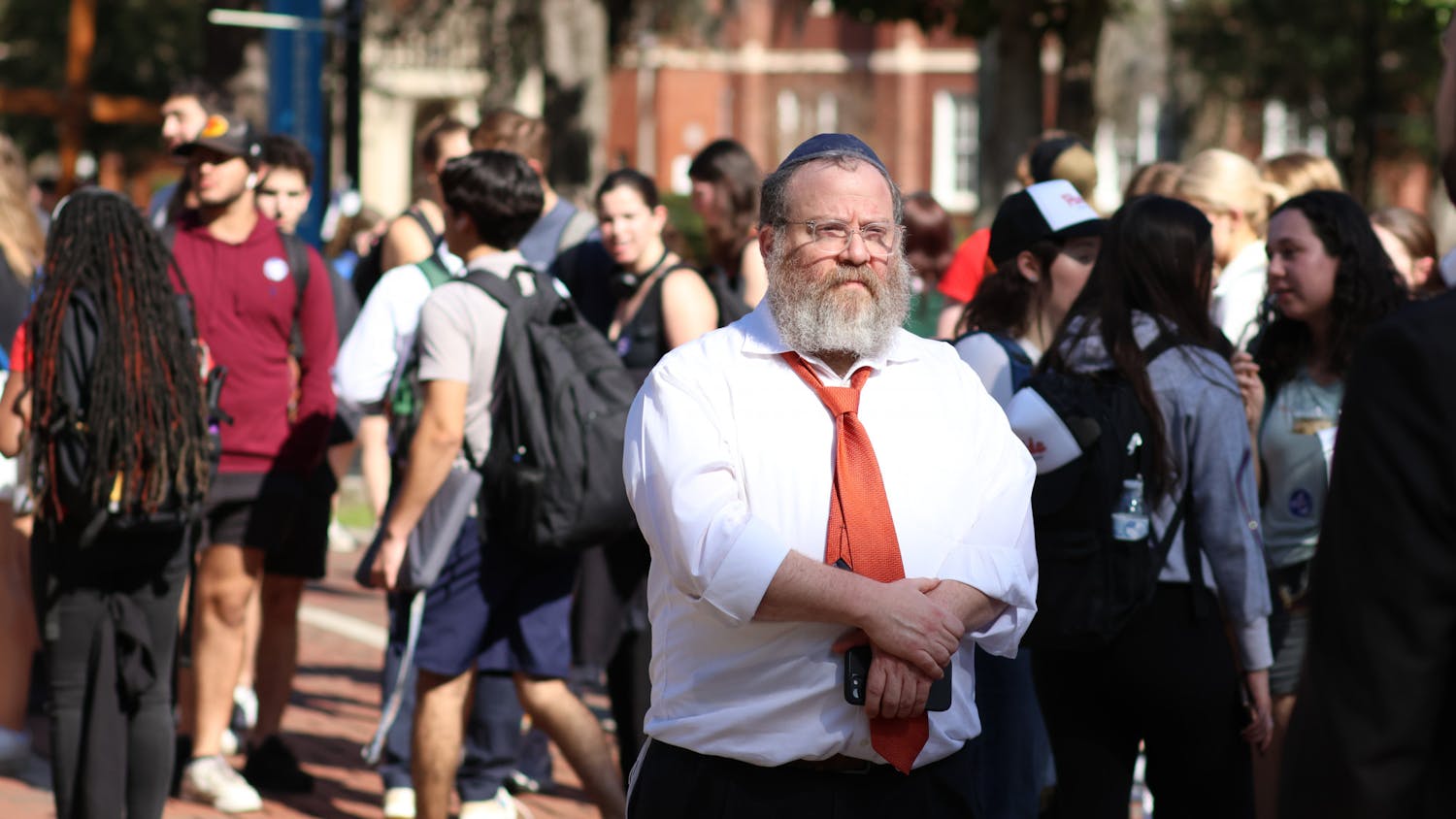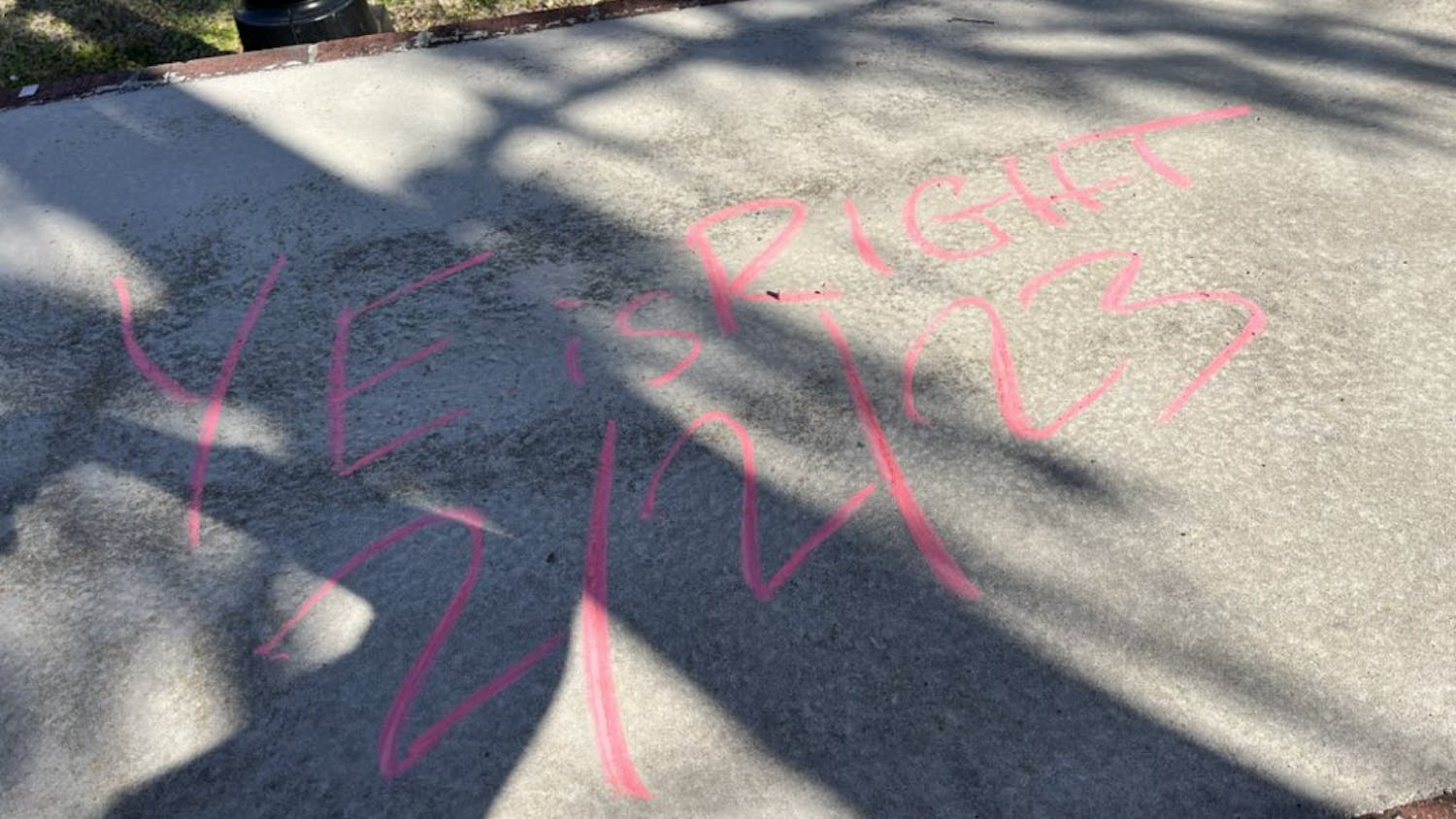On Sunday evening, I was one of hundreds students in the Jewish community at UF who celebrated the beginning of Rosh Hashanah, the Jewish New Year. Rosh Hashanah, which is Hebrew for “head of the year,” marks the start of the High Holy Days, a sacred period of time in the Jewish religion focused on self-reflection and forgiveness.
In my case, celebrating this special holiday meant attending a service for the new year and squeezing myself at a cramped but cozy table in a synagogue overflowing with students — some familiar, some friends and some strangers — with beads of sweat forming on my upper lip from the bowl of perfectly hot matzo ball soup in front of me.
This 10-day period in the Jewish religion and culture holds different meanings for those celebrating. For some, the prayers are especially meaningful, and for others, perhaps it’s all about the apples and honey — a traditional combination that symbolizes wishes for a sweet new year. For many, though, the High Holy Days are a time for family traditions and community; it’s likely students can relate in having memories of eating warm challah bread drizzled in honey at the kitchen table at home, or of celebrating the new year with siblings, parents, grandparents or friends.
While some students may return home to be with their families, for me, celebrating the Jewish New Year in Gainesville and at UF for my fourth and final year is especially sweet. Growing up in a small suburb in northern Ohio, I was always one of the only Jewish students in my school district. My hometown Jewish community was tight-knit but very small (and there were times when I practically brought down the average age of the sometimes-snoring synagogue attendees by about 50 years).
However, at UF, which has one of the largest Jewish population among the nation’s public universities, I’ve been fortunate to form new Rosh Hashanah traditions and experience my religion in a new light. It’s made me appreciate not only the Jewish communities on campus, but the diversity and warmth I’ve found at UF as a whole.
Little moments of kindness have made my Jewish experience at UF unique. I’ll never forget walking into my freshman-year dorm common room to find my RA arranging a bowl of apples and honey for all the residents to enjoy, or hearing random students wishing each other “shanah tova” (which means “have a good and sweet new year”) as they passed each other on the sidewalks of campus. These occurrences aren’t exactly deep religious experiences, and they may not seem groundbreaking for students who grew up in diverse cities or suburbs, but they’re moments that made me feel incredibly welcomed and at home, especially in my first year as an out-of-state student — and there’s definitely something to be said about that.
Of course, not every day or situation is sweet like apples and honey. I was on campus the day a man appeared in Turlington Plaza wearing a swastika armband, and almost a year ago, I was one of many students fearful of what would happen when a hate group spoke at UF. While these events can unfortunately happen at any university or institution or place around the world, I feel lucky to say that having the support of my cultural and religious community on campus — and knowing that students of all identities and backgrounds have resources and communities they can lean on as well — has been meaningful during my time as an undergraduate.
Regardless of your religion or your beliefs, and even if you’re not observing the High Holy Days or eating matzo balls with people you love, I hope my story reminds you of how meaningful it really is to be a part of this vibrant, diverse campus. As cliché as it may sound, we each contribute something different to the fabric of our school. And when we not only find our niche, but also learn from communities and traditions beyond our own, it’s pretty sweet.
Darcy Schild is a UF journalism senior. Her column appears on Wednesdays.






